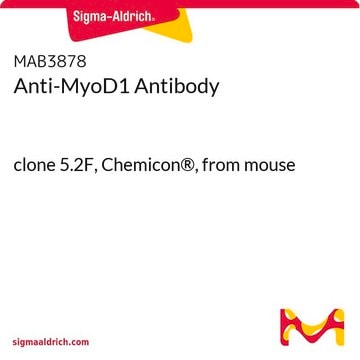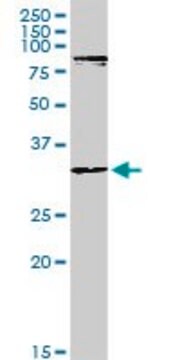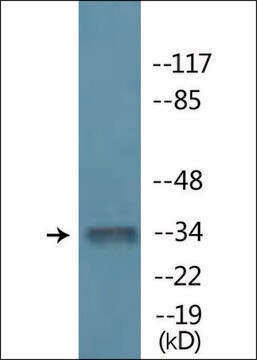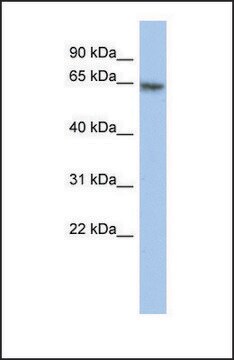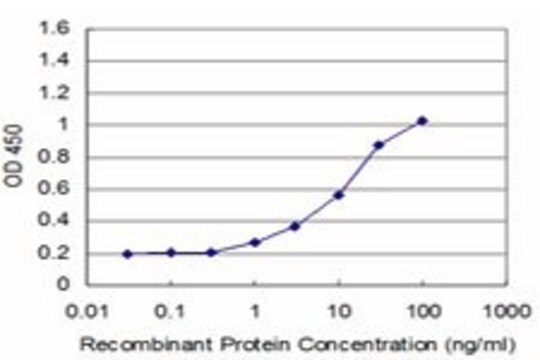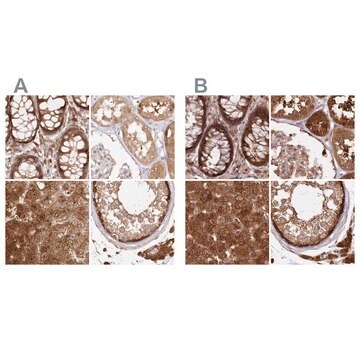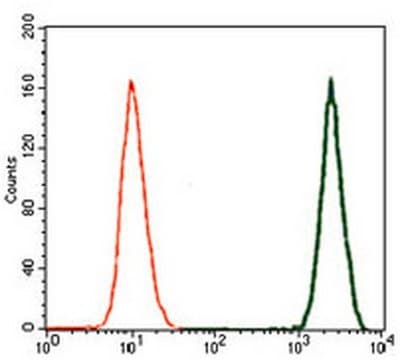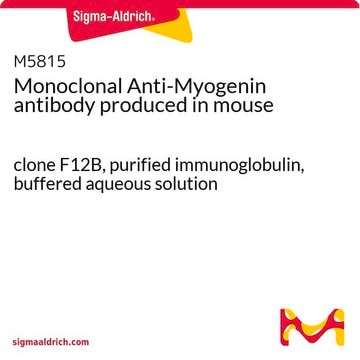MABE132
Anti-MyoD Antibody, clone 5F11
clone 5F11, from rat
Sinónimos:
Myoblast determination protein 1
About This Item
Productos recomendados
biological source
rat
Quality Level
antibody form
purified immunoglobulin
antibody product type
primary antibodies
clone
5F11, monoclonal
species reactivity
mouse
technique(s)
immunocytochemistry: suitable
western blot: suitable
isotype
IgG2aκ
NCBI accession no.
UniProt accession no.
shipped in
wet ice
target post-translational modification
unmodified
Gene Information
mouse ... Myod1(17927)
General description
Immunogen
Application
Western Blot Analysis: A representative lot detected MyoD in C2C12 cells.
Signaling
Developmental Signaling
Quality
Western Blot Analysis: 0.5 µg/mL of this antibody detected MyoD in 10 µg of C2C12 cell lysate.
Target description
Linkage
Physical form
Storage and Stability
Analysis Note
C2C12 cell lysate
Other Notes
Disclaimer
¿No encuentra el producto adecuado?
Pruebe nuestro Herramienta de selección de productos.
Storage Class
12 - Non Combustible Liquids
wgk_germany
WGK 1
flash_point_f
Not applicable
flash_point_c
Not applicable
Certificados de análisis (COA)
Busque Certificados de análisis (COA) introduciendo el número de lote del producto. Los números de lote se encuentran en la etiqueta del producto después de las palabras «Lot» o «Batch»
¿Ya tiene este producto?
Encuentre la documentación para los productos que ha comprado recientemente en la Biblioteca de documentos.
Nuestro equipo de científicos tiene experiencia en todas las áreas de investigación: Ciencias de la vida, Ciencia de los materiales, Síntesis química, Cromatografía, Analítica y muchas otras.
Póngase en contacto con el Servicio técnico